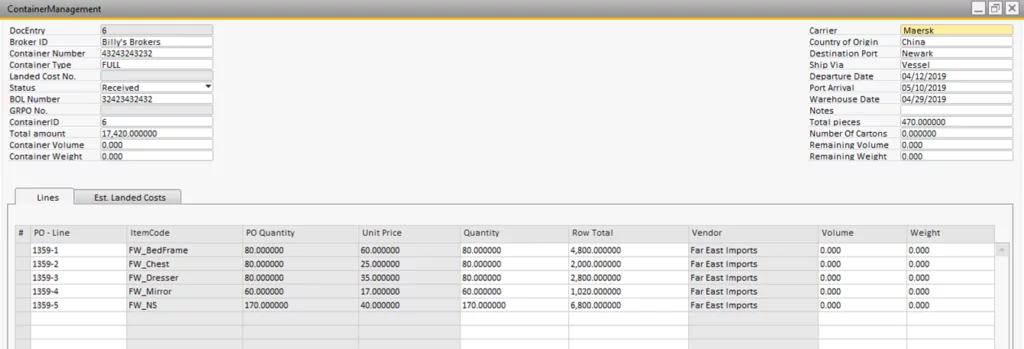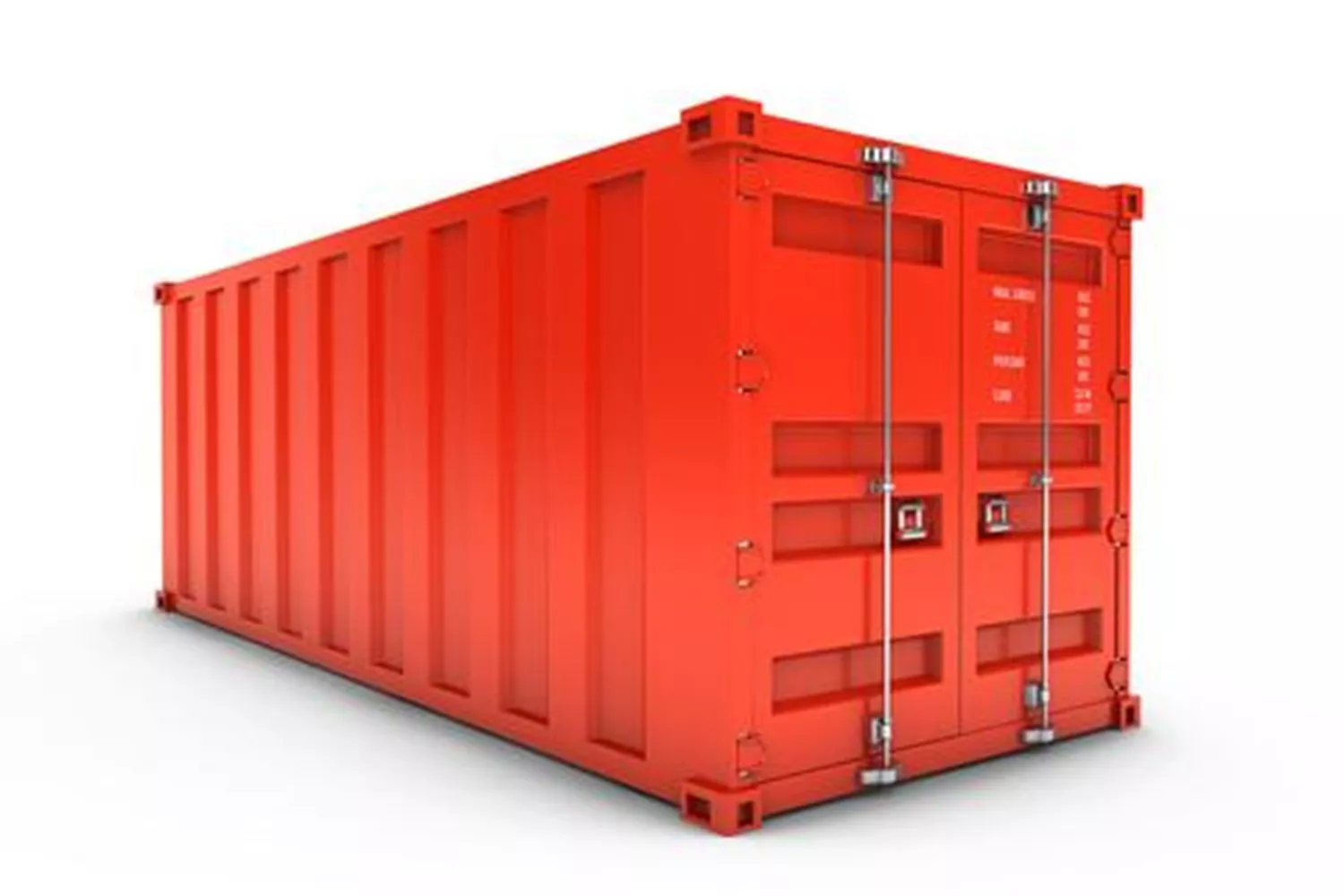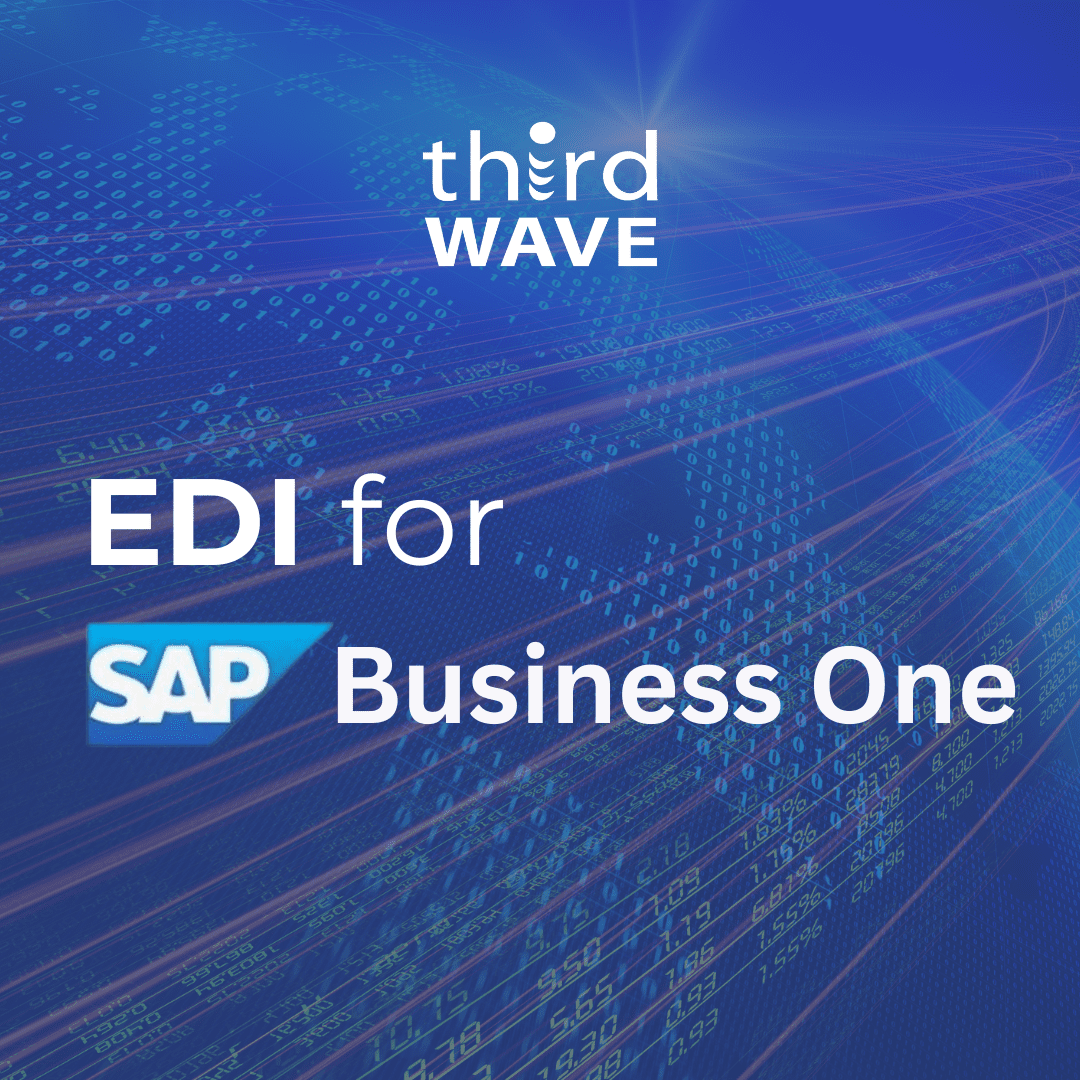In the fast-paced world of Consumer Packaged Goods (CPG), supply chain disruptions have become a pressing challenge that companies must confront. These interruptions can arise from various factors, including natural disasters, geopolitical tensions, and logistical inefficiencies, leading to significant consequences for product availability and business operations. Delve into the causes and effects of supply chain disruptions in the CPG industry and explore how digital transformation—specifically through technologies like ERP—can serve as a solution.
Understanding the Causes of Supply Chain Disruptions in the CPG Industry
Natural Disasters and Geopolitical Tensions
Natural disasters such as hurricanes, floods, and earthquakes can wreak havoc on supply chains, causing delays and stockouts. Similarly, geopolitical issues like trade wars, international conflicts, and more recently, the longshoremen strike can result in port closures and increased tariffs, further complicating the movement of goods. These logistical challenges can result in longer lead times for production and fulfillment, which ultimately have negative financial implications.
Inefficient Inventory Management
Product availability is crucial for meeting customer demands, and disruptions can lead to costly stockouts. Traditional inventory management systems may struggle to provide the real-time visibility necessary for effective decision-making. According to a study from Fictiv, 55% of manufacturing-related businesses cite improving supply chain visibility as a top priority, emphasizing the need for better tracking of goods and supplier readiness forecasting to mitigate disruptions.
Importing, Customs, and Duties
The CPG industry heavily relies on imported raw materials and finished products. Disruptions in global supply chains can lead to delays in customs processing and unexpected tariffs, which can significantly increase costs. As tariffs fluctuate, companies must adapt their pricing strategies to maintain competitiveness. A staggering “50% of senior executives” across various industries reported that their companies are passing higher supply chain costs onto consumers, further complicating the landscape.
The Results of Supply Chain Disruptions
The implications of supply chain disruptions are far-reaching and multifaceted. Companies may experience financial costs, opportunity costs, and even reputational costs.
Customer Experience Impact
Stockouts can lead to dissatisfied customers and lost sales. A seamless supply chain is essential for meeting consumer expectations, particularly in an era where same-day or next-day delivery has become the norm. If a customer cannot find a product when they need it, they may turn to competitors.
Increased Operational Costs
Supply chain disruptions often lead to increased costs associated with transportation, storage, and procurement. For instance, during significant disruptions, transportation costs can surge due to delays and rerouting. Companies may also feel the need to maintain larger inventory buffers, which can tie up capital and reduce liquidity. This is a precarious issue as “national storage pricing has increased by 1.4% month-over-month,” intensifying the cost implications of holding excess inventory. Therefore, effective cost management becomes critical for maintaining profit margins.
Erosion of Competitive Advantage
CPG companies that fail to adapt quickly to supply chain challenges risk losing their competitive edge. The shift toward eCommerce means that consumers have more choices than ever, making it essential for companies to maintain product availability and efficient delivery in order to retain customers.
Embracing Digital Transformation
To navigate these complexities and alleviate the pains of supply chain disruptions, CPG companies must embrace digital transformation. This includes adopting technologies that enhance visibility, improve forecasting, and streamline operations. Here are several key components of a successful digital transformation strategy:
- Enhanced Visibility and Real-Time Analytics: Digital tools that provide real-time insights into inventory levels and supply chain performance can significantly improve decision-making. Companies should leverage technologies like the Internet of Things (IoT) for enhanced visibility, allowing them to monitor goods in transit and anticipate potential disruptions.
- Advanced Forecasting Techniques: Utilizing Artificial Intelligence (AI) for predictive analytics can help CPG companies better understand demand patterns and adjust production schedules accordingly. A survey found that approximately 85% of leaders in supply chain and manufacturing plan to adopt AI technologies to bolster resilience and efficiency.
- Centralized Product Information Management: Product Information Management (PIM) systems play a critical role in ensuring that accurate product data is available across all channels. By centralizing product information, companies can reduce discrepancies that may arise from manual data entry, ensuring compliance and facilitating smoother operations. The implementation of PIM systems can lead to improved inventory accuracy rates, which is crucial during disruptions.
- Effective Cost Accounting: A dynamic and flexible approach to budgeting is essential in the volatile landscape of CPG. Accurate cost accounting provides the data needed to make informed strategic decisions, such as diversifying suppliers or optimizing inventory levels. This adaptability can help companies navigate unexpected financial pressures and maintain profitability. In fact, companies using advanced cost accounting techniques have reported a 30% improvement in budget accuracy during disruptions, demonstrating the importance of adaptability in financial planning.
Leveraging Third Wave and SAP for Success
An ERP solution like SAP Business One can significantly facilitate the digital transformation journey for CPG companies. By integrating various business processes, including inventory management, financial accounting, and customer relationship management, SAP Business One offers a comprehensive view of operations. This centralized system enables real-time data analytics, allowing businesses to make informed decisions quickly.
Having a trusted partner like Third Wave is paramount for companies navigating the ERP implementation process. With industry expertise and a deep understanding of the CPG landscape, Third Wave specializes in leveraging SAP Business One and other digital solutions like Versago and Bizweaver to help businesses streamline operations, enhance supply chain visibility, and improve overall efficiency. This support from trusted advisors ensures that CPG companies are well-equipped to handle the challenges posed by supply chain disruptions.
- Bizweaver – Bizweaver automates processes and streamlines production management by synchronizing workflows across the organization. It serves as a hub for all the transaction information flowing in and out of your business.
- Versago – Versago streamlines digital communication by connecting departments, channels, partners, employees, and locations with SAP Business One data. It gives you the flexibility to streamline collaboration and address specific issues with optimization, resource allocation, and more.
- Container Management – The process of managing multiple shipments across various suppliers to ensure compliance with international trade regulations can be intricate. SAP Business One streamlines this complexity by centralizing documentation, automating customs procedures, and providing real-time visibility into shipment statuses. This enables businesses to track goods from origin to destination, minimizing delays and optimizing logistics.
While supply chain disruptions continue to present formidable challenges for CPG companies, the ability to adapt and respond to disruptions is more critical than ever. By embracing digital transformation strategies and leveraging emerging technologies, companies can navigate these challenges more effectively. Connect with Third Wave today to explore how SAP Business One can help you master the challenges of your supply chains and emerge stronger.

Mastering CPG Challenges: Navigating Supply Chain Disruptions
Learn More
In today’s dynamic manufacturing landscape, supply chain management has emerged as a crucial pillar of business success. However, the complexities associated with managing supply chains have intensified, driven by a range of factors that challenge traditional practices. Join us to explore the causes of these supply chain challenges, understand the consequences of poor management, and discuss how digital transformation can alleviate these growing pains.
Causes of Supply Chain Challenges
1. Material Scarcity
One of the most pressing issues in supply chain management today is material scarcity. According to the 2023 Hubs Supply Chain Resilience report, “Raw materials shortages were the most cited supply chain challenge, with 61% of the 334 respondents choosing it as a top supply chain disruption.” These shortages not only escalate costs for supplies but also erode profit margins and lead to higher prices for consumers. Businesses facing these shortages must navigate increased expenses and potential delays, which can disrupt production schedules and customer satisfaction.
To counteract these issues, companies are diversifying their suppliers and enhancing communication and collaboration with vendors. By improving these relationships, businesses can mitigate the risk of supply disruptions caused by regional events, such as severe weather. Furthermore, leveraging advanced business technology solutions like ERP systems enables firms to track supply levels and maintain minimum stock. This proactive approach provides a competitive edge, allowing companies to manage inventory more effectively and avoid the pitfalls of just-in-time procurement.
2. Inflation and Changing Consumer Demand
Inflation and shifting consumer expectations are also significant factors affecting supply chains. With more shopping moving online, consumers have developed high expectations for quick and cost-effective delivery. A June 2022 survey by Santa Clara University’s Retail Management Institute found that “90% of respondents expect free delivery within five days, with 62% expecting it within three days.” These expectations place additional pressure on inventory management and fulfillment processes.
To meet these demands, businesses must invest in more effective inventory allocation processes. Tools such as automatic inventory-level alerts and warehouse management systems (WMS) can help ensure that goods are available and can be shipped quickly to fulfill orders. Adapting to these consumer demands involves rethinking inventory strategies and embracing technology that enhances responsiveness and efficiency.
3. Lack of Visibility and Communication
A major challenge in modern supply chains is the lack of visibility and communication across the network. The 2022 Interos Annual Global Supply Chain Report highlights that “more than 99% of respondents saw clear benefits from investing in software solutions for supply chain risk management.” Technologies like automated data collection and IoT devices offer real-time updates on goods as they move through the supply chain. However, transitioning to these new systems can be fraught with difficulties, particularly for larger companies with complex operations.
Effective training programs are essential to help staff adapt to new technologies and prevent a loss of institutional knowledge. Striking the right balance between cutting-edge technology and established best practices is crucial for leveraging these advancements successfully. By adopting a thoughtful approach to digital transformation, businesses can enhance their supply chain visibility and communication, paving the way for more agile and resilient operations.
Results of Poor Supply Chain Management
When supply chain management falters, the repercussions can be severe. Common outcomes include:
- Delays in Delivery: Poorly managed supply chains often lead to delays in product delivery, impacting customer satisfaction and trust.
- Rising Logistics and Inventory Management Costs: Inefficiencies and shortages drive up costs associated with logistics and inventory management, affecting the bottom line.
- Long Production Cycles: Disruptions in the supply chain can lead to extended production cycles, delaying product availability and time-to-market.
- Poor Customer Experience: Ultimately, the combination of delays, increased costs, and inventory issues results in a diminished customer experience, which can erode brand loyalty and market share.
The Solution: Digital Transformation
The path to overcoming these challenges lies in digital transformation. Integrating advanced business technology solutions can significantly enhance supply chain management. For instance, ERP systems offer robust capabilities for tracking supply levels, maintaining minimum stock, and gaining a competitive edge through improved inventory management.
Automated data collection and IoT devices provide real-time status updates, enabling businesses to respond quickly to disruptions and adjust their strategies accordingly. By adopting these technologies, companies can achieve greater visibility, streamline operations, and better meet customer expectations.
Moreover, finding the right balance between state-of-the-art technology and proven best practices is key. Businesses that integrate innovative solutions while maintaining established practices can build resilient supply chains capable of adapting to both current challenges and future opportunities.
Partnering with Third Wave and SAP for Success
SAP Business One is a powerful ERP solution that supports companies in their digital transformation journey. It offers comprehensive tools for managing supply chains, from inventory tracking to real-time data analysis. By implementing SAP Business One, businesses can gain valuable insights into their operations, streamline processes, and improve overall efficiency.
As a trusted advisor specializing in SAP Business One implementations for manufacturers, Third Wave empowers businesses to optimize their supply chains and achieve sustainable growth. Our expertise extends beyond mere software implementation to comprehensive support in aligning technology with business strategies, ensuring a seamless transition and ongoing success.
Effective container management and supply chain optimization are critical for small businesses looking to thrive in a competitive global market. Tools like Third Wave’s Versago and Bizweaver help managers navigate the complexities of importing by streamlining vital communication, enhancing operational efficiencies, and ultimately ensuring exceptional customer experiences.
- Bizweaver – Bizweaver automates processes and streamlines inventory management by synchronizing transactions across the organization. It serves as a hub for EDI, 3PLs, shipping and logistics, CRM systems, and eCommerce platforms.
- Versago – Versago streamlines digital communication by connecting departments, channels, partners, employees, and locations with SAP Business One data. It gives you the flexibility to streamline collaboration and address specific issues with distribution, fulfillment, and more.
Remember, your success starts with a robust ERP solution and a knowledgeable partner. Let Third Wave guide you towards a future of streamlined operations and sustained growth. Contact Third Wave to discover how we can help your business achieve its full potential with SAP Business One.

Navigating the Growing Pains of Supply Chain Management: The Path to Digital Transformation
Learn More
In the dynamic world of wholesale distribution, managing supply chains effectively can make or break a business. Effective container management plays a pivotal role in ensuring smooth operations, managing costs, and meeting customer expectations. Small businesses particularly face unique challenges, especially when it comes to importing goods. From navigating international regulations to optimizing logistics and ensuring product quality, the complexities can seem daunting. However, with the right tools and strategies, these challenges can be turned into opportunities for sustainable growth and operational efficiency.
Meeting Customer Demands: The Key to Customer Satisfaction
At the heart of every successful wholesale distributor is the ability to meet customer demands promptly and accurately. This requires a finely tuned supply chain that ensures products are available when needed. For small businesses importing goods, this means not only having the right inventory in stock but also ensuring it arrives on time and in good condition.
Understanding Inventory: A Strategic Advantage
Effective inventory management is crucial for controlling costs and meeting customer expectations. Small businesses must have real-time visibility into inventory levels, which becomes more complex when dealing with imported goods. Utilizing SAP Business One provides a robust solution for managing inventory across multiple locations and warehouses, offering detailed insights that facilitate proactive decision-making.
Fulfilling Orders Efficiently: Boosting Profits and Margins
Efficiency in order fulfillment directly impacts profitability. By streamlining processes such as order processing, picking, packing, and shipping through SAP Business One, businesses can reduce lead times and operational costs. This not only enhances customer satisfaction but also improves cash flow by minimizing tied-up capital in excess inventory.

Overcoming Challenges in Container Management
Small businesses importing goods face several specific challenges that can be effectively managed with the right ERP system like SAP Business One:
1. Complexity of International Trade
Finding reliable suppliers and navigating international regulations are top concerns. SAP Business One simplifies vendor management and compliance by integrating functionalities for vendor performance measurement and automating documentation processes.
2. Financial Challenges
Costing and profit margins can fluctuate due to factors like currency exchange rates. SAP Business One’s capabilities in landed cost calculation and multi-currency management ensure accurate financial planning and analysis, safeguarding profitability amidst market fluctuations.
3. Quality Control
Maintaining consistent product quality is essential for customer retention and brand reputation. SAP Business One supports quality control processes through tools that facilitate recording, measuring, and automating QC procedures, ensuring that only goods meeting specified standards are delivered to customers.
4. Managing Imports and Exports Seamlessly
Small businesses often face challenges in coordinating imports and exports efficiently. From managing multiple shipments across various suppliers to ensuring compliance with international trade regulations, the process can be intricate. SAP Business One streamlines this complexity by centralizing documentation, automating customs procedures, and providing real-time visibility into shipment statuses. This enables businesses to track goods from origin to destination, minimizing delays and optimizing logistics.
5. Handling Thousands of Products with Precision
Managing a diverse range of products within containers requires meticulous planning and execution. SAP Business One offers robust inventory management capabilities that enable businesses to categorize products, track quantities, and allocate resources effectively. Whether it’s managing perishable goods with specific storage requirements or handling bulk shipments with varying shelf lives, SAP Business One ensures inventory accuracy and availability, reducing stock-outs and excess inventory costs.
6. Vendor Inventory Planning and Collaboration
Effective vendor management is critical for maintaining optimal inventory levels and fulfilling customer orders promptly. SAP Business One facilitates seamless communication and collaboration with suppliers by automating purchase order processes, integrating vendor performance metrics, and forecasting demand based on historical data and market trends. This proactive approach enables businesses to build stronger supplier relationships, negotiate better terms, and improve overall supply chain efficiency.
7. Utilizing KPIs for Strategic Insights
Key Performance Indicators (KPIs) serve as essential metrics for evaluating container management effectiveness and overall supply chain performance. SAP Business One empowers businesses to define and track KPIs such as on-time delivery rates, inventory turnover ratios, and fill rates. These insights enable informed decision-making, identify areas for improvement, and drive continuous optimization across the supply chain.
Partnering with Third Wave for Success
As a trusted advisor specializing in SAP Business One implementations for wholesale distributors, Third Wave empowers businesses to optimize their supply chains and achieve sustainable growth. Our expertise extends beyond mere software implementation to comprehensive support in aligning technology with business strategies, ensuring a seamless transition and ongoing success.
Effective container management and supply chain optimization are critical for small businesses looking to thrive in a competitive global market. Tools like Third Wave’s Versago and Bizweaver help managers navigate the complexities of importing by streamlining vital communication, enhancing operational efficiencies, and ultimately ensuring exceptional customer experiences.
- Bizweaver – Bizweaver automates processes and streamlines inventory management by synchronizing transactions across the organization. It serves as a hub for EDI, 3PLs, shipping and logistics, CRM systems, and eCommerce platforms.
- Versago – Versago streamlines digital communication by connecting departments, channels, partners, employees, and locations with SAP Business One data. It gives you the flexibility to streamline collaboration and address specific issues with distribution, fulfillment, and more.
Remember, your success starts with a robust ERP solution and a knowledgeable partner. Let Third Wave guide you towards a future of streamlined operations and sustained growth. Contact Third Wave to discover how we can help your business achieve its full potential with SAP Business One.

Enhancing Supply Chain Efficiency through Advanced Container Management
Learn More
SAP Business One users are asking if there is a better way to handle container management. The time it takes to reconcile, update purchase orders, unload the container and update key users on status of containers leads to unnecessary work and lack of visibility and control.
Centralize Information and Automate Processes
At Third Wave we work with numerous importer/distributors and delivered functionality to meet their specific needs. Most times the needs analysis included some or all of the same requirements for SAP Business One Container Management:
- Consolidation of multiple PO’s
- This consolidation might be with multiple vendors
- This consolidation might not be the full quantity of the PO line
- Centralizing all information, below are examples of information users want to capture
- Broker
- Carrier
- Container ID
- Status
- Planning
- Shipped
- At Port
- Cleared
- Received
- Complete
- Country of origin
- Destination Port
- Ship via
- Dates
- Departure
- Port arrival
- Estimated receiving date
- Notes
- Number of pieces
- Total weight
- Total volume
- Estimated landed costs
- Estimated landed costs
- Automate the update PO line dates with estimated receiving date
- Automate the movement of stock into warehouses or bins based on status
- Automate Goods Receipt PO’s
- Automate the creation of stock transfer requests automatically for WMS put away
Third Wave has created an SAP Business One Container Management solution to deliver solutions to our customers looking for some or all of the above functionality. The creation and updating of information based on status and dates have automated processes that before were time-consuming and required multiple emails to be passed within the organization. The visibility and centralization of information have improved communication, increased control, decreased unloading times, and increased satisfaction of employees and customers.

Talk to an expert today and discuss how we can help you get the most out of SAP Business One
Container Management for SAP Business One Webinar
Our Philosophy
As North America’s longest-standing SAP Business One Partner we’ve literally been with our customers every step of the way and are deeply passionate about their success. Our leadership team ensures each SAP Business One customer benefits from both our implementation discipline and creative problem solving to support their current and future needs.

SAP Business One – Container Management
Learn More
Are your customers allowed to deduct from certain invoices when rules of engagement are not met? If so, you know how costly these chargebacks are, not only in dollars themselves but in the processing as well. Chargeback processing can involve many steps and accounting entries to ensure that the proper accounting is taking place. Third Wave’s Chargeback Processing solution eliminates those complicated steps.
The top 5 reasons your organization needs Chargeback Processing:
- Create custom Chargeback types – you have the ability to set rules for certain types of chargebacks
- Chargeback Processing allows you to separately track all Chargebacks and create a seamless process of approving or declining each charge. This way, you can keep your chargebacks better organized, while running on a very smooth process.
- Easily assign Chargeback funds to separate general ledger accounts, allowing proper tracking of funds for financial reporting.
- Automatically create AR invoices and credit memos to facilitate the chargeback process.
- Use approval processing to manage your customers’ potential Chargebacks while assigning to the appropriate Chargeback reason code.
As you can see, Third Wave’s Chargeback Processing has the potential to comepletely revamp your chargeback processing process. For more information on how Chargeback Processing for SAP Business One can benefit your organization, please watch the video below or contact Third Wave directly!

The Top 5 Reasons You Need Chargeback Processing Capabilities in SAP Business One
Learn More
Winning contracts to sell products through big-box retail stores such as Walmart, Home Depot, Target, Amazon, and Costco, is a key milestone to grow your business. Implementing an ERP system enables you to establish a partnership with these retailers and grow your distribution. But, it requires keeping up with the large retailers’ ever-increasing demands such as same-day shipping, reserved stock, zero stock-outs and backorders, labeling, plus data and shipping compliance. These demands can negatively impact small and medium-sized business profitability despite growth in customers, channels, and products.
Selling to big-box retailers involves a high volume of bulk orders that flow in and out of the supply chain and suppliers like you are required to comply with EDI to ensure that the business systems of all parties involved—from suppliers to logistics partners to retailers— are ‘speaking the same language’, regardless of their back-end systems. EDI, will enable you to receive purchase orders, send invoices, and exchange other transactional documents.
Maintaining EDI relationships can be overwhelming and complex. Incompatible applications and the lack of integration with your ERP system could lead to redundant keying, duplicate entries, and manual errors that cause inefficiency and delays in your supply chain.
Plus, if not 100% compliant, SMBs will either find themselves being fined through chargebacks or just cut off either from further purchases or website prioritization. Even while 100% compliant, SMBs can still get fined! A common solution is to outsource much of the compliance work to third-party logistics providers (3PLs) and focus on product development but SMBs quickly find that it’s an expensive option and still doesn’t ease the pain.
Third Wave is familiar with these challenges. Our clients sell to big box retail stores using our complete order processing and fulfillment solutions to manage EDI relationships with trading partners. As a result, our clients have managed to grow while maintaining profitability and strong trading partner relationships.
Using Third Wave solutions designed and built for SAP Business One you can:
- Streamline Operations: Replace manual processes by integrating systems
- Uncover opportunities for growth via new channels: Implement EDI translation and mapping software that matches your business needs
- Simplify compliance: Comply with EDI requirement to avoid chargebacks and fines
- Strengthen relationships: Make the most out of your B2B relationships and trading experience
The measurable benefits of EDI for SAP Business One
Our clients have experienced significant changes in cost, speed, and reliability of data exchange:
- Reduced cost of document management
- Reduction of errors
- Faster invoice payments
- Faster logistic processes
- Reduction of incomplete/ incorrect delivery
- Reduction of administrative work
- Better relations with partners
- Faster clarification of misunderstanding with partners
Learn more about Third Wave solutions —Versago & Bizweaver — built for supply chain and trading partner relationship management with EDI compliant automation.
Schedule a free consultation to learn more about our EDI solutions for SAP Business One.
Q&A
What is the impact of new tech trends?
For the past 20 years, EDI has steadily gained mainstream adoption throughout businesses worldwide as the preferred means to exchange documents in the B2B transaction process. EDI has grown and today, like ERP systems, remains a backbone for small and medium-sized businesses.
What about the APIs?
APIs allow two different applications to communicate. In comparison to EDI, API enables real-time exchange so the value-added for the entire supply chain is visible. However, EDI remains the most popular solution due to its state-of-the-art security and proven reliability which has turned it into a robust data exchange standard it is today. APIs are improving in this regard but EDI is still considered superior for supplier/trading partner data exchange.
Will blockchain technology and artificial intelligence replace the EDIs? Or will these solutions be used to simply improve their overall efficiency?
EDI and Blockchain solve different problems and in fact are complimentary. EDI defines a standard message format for trading non-monetary documents. Blockchain implements a way of sharing, securing, and storing transactional data and in a way where all relevant parties can access the information. Blockchain will enhance EDI. AI and Machine Learning are also complimentary to EDI and can be used in identification and decisioning around certain transactions. Examples would be the identification of events and information connected to a shipment, a non-compliant event, determine if a reshipment is required, analyze the most efficient source of replacement, initiate a new shipment and an authorized return.

Modernizing B2B integration with EDI compliant automation
Learn More